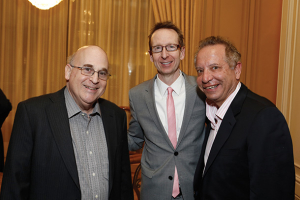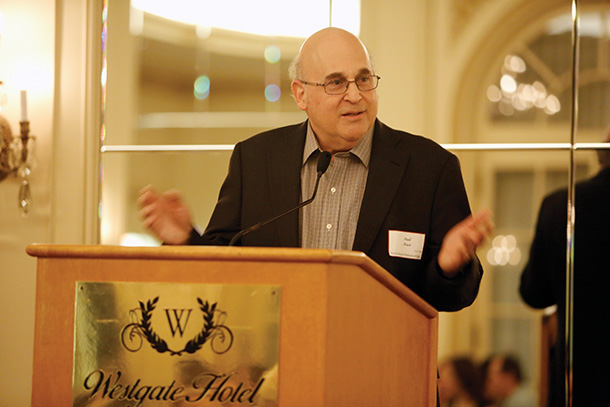Top researchers from across the U.S. gathered in San Diego recently to commemorate a renewed commitment to understand and fight the leading fatal neurodegenerative disease affecting the aging population.
The USC Alzheimer’s Therapeutic Research Institute (ATRI) Partnership Meeting was held in January and brought together USC leaders, neuroscientists and visiting researchers to discuss the new institute and the future of Alzheimer’s research. The two-day event marks the first meeting since the founding of ATRI this past summer.
ATRI was established in June and is led by Paul Aisen, MD, a professor of neurology at the Keck School of Medicine of USC and one of the country’s leading Alzheimer’s scientists. With 65 researchers and staff members, ATRI is focused on the development of new, effective treatments for Alzheimer’s disease through clinical trials. USC ATRI adds a strong clinical research program to complement the university’s existing strengths in Alzheimer’s disease research.
“I am grateful to be working at an institute under the great leadership of USC,” Aisen said. “We have had fantastic support from not just university leaders, but also from staff and faculty and so many other people at USC.”

From left, Paul Aisen, Michael Quick and Carmen A. Puliafito pose during the USC Alzheimer’s Therapeutic Research Institute Partnership Meeting in January. (Photo/Steve Cohn)
At the meeting, Aisen was joined by Carmen A. Puliafito, MD, MBA, dean of the Keck School of Medicine of USC, and USC Provost and Senior Vice President for Academic Affairs Michael Quick, PhD.
Visiting researchers toured ATRI’s new facility in north San Diego, which offers sprawling views of Sorrento Valley and spacious work areas for researchers and staff. Guests later were hosted by Aisen, Puliafito and Quick at a reception and dinner at the Westgate Hotel in downtown San Diego. The following day, ATRI staff and visiting researchers took part in presentations focused on research, clinical operations, recruitment and ethics.
USC is committed to Alzheimer’s disease research and building upon its strategic presence in the field of neuroscience, Quick said.
“We are proud to have ATRI as part of USC,” Quick said. “At the end of the day, it’s about making sure the science gets done. We saw an opportunity to attract an amazing group and allow them the freedom to continue the work they do. These scientists will help USC to continue our evolution of supporting great work.”
Alzheimer’s disease is the sixth-leading cause of death in the U.S. and one in three seniors dies from Alzheimer’s or other dementia, according to the Alzheimer’s Association. Alzheimer’s is the only disease among the top 10 in America that cannot be prevented, cured or slowed.
— Douglas Morino


